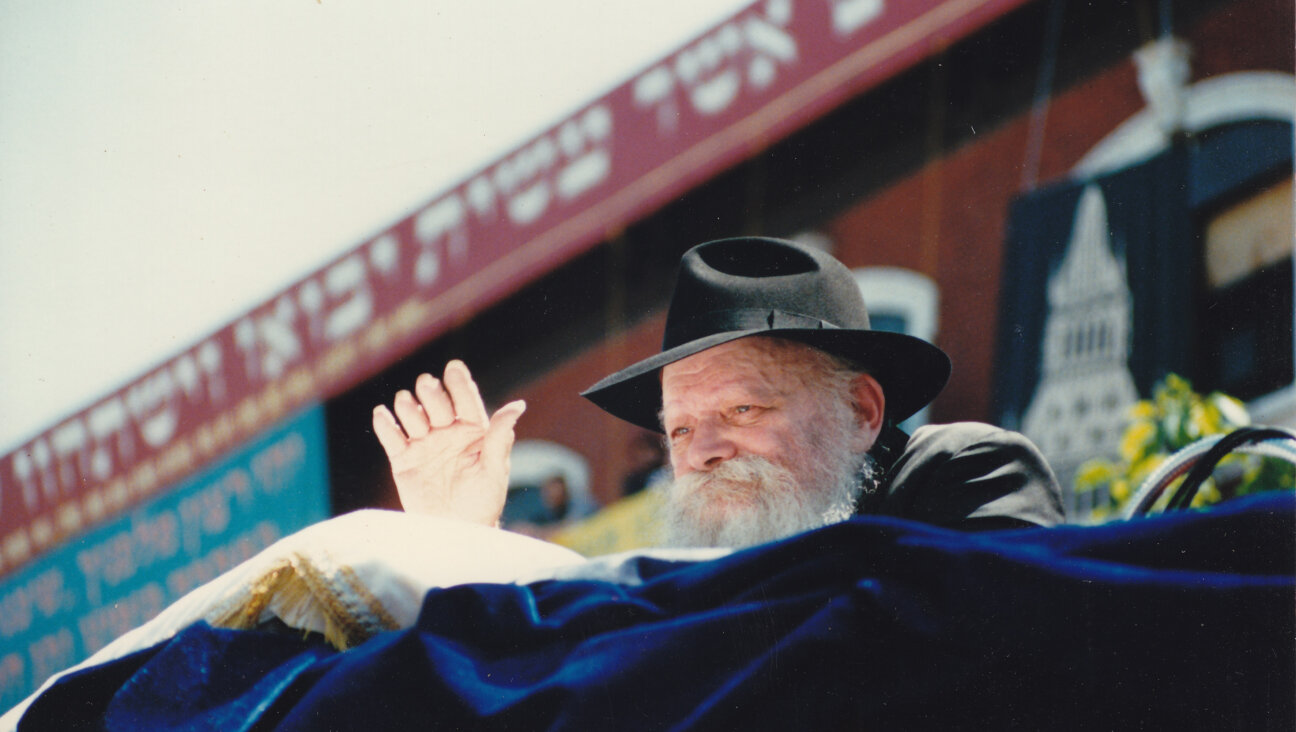March 7, 2003
Israel Debate Reflects Communal Fears
Opinion writer Jill Jacobs wonders why the Jewish community is trying to deter anti-Israel discussions amongst ourselves (“Who’s Afraid Of the Big, Bad Israel Debate?”, February 21).
Why? Because we are afraid of history repeating itself. We are afraid that mounting anti-Israelism around the world is merely a disguise for age-old antisemitism. We are afraid that, as with all political issues affecting the Jewish community, those who hate us will thrive on warping and misusing the words of well-meaning but misguided Jews for their own bigoted propaganda machine. We are afraid that while American Jewry wrings its hands about alleged human rights abuses perpetrated on Palestinian terrorists, the Arab world will succeed in its campaign to delegitimize the Jewish state, thereby paving the way for its longed-for obliteration of Israel and the genocide of its citizens, nearly half of the remaining Jewish population of the entire world.
Before criticizing our leaders for trying to prevent our people from contributing to another Holocaust, perhaps Jacobs should read what the Palestinian and Arab press and schoolbooks have to say about us. According to them, we Jews are pigs and monkeys not entitled to human rights. This is what we are afraid of.
Adrienne Scholz
Westminster, Calif.
The decision by the Jewish Theological Seminary to block the publication of Jill Jacobs’s Torah commentary in a school publication represents a broader and deeply worrying trend within the leadership of the Conservative movement. The movement’s institutions gravitate toward a top-down model of decision-making that obscures responsibility for decisions and disenfranchises lay members of the movement from any substantive role in determining the ways in which the movement will develop.
As a fourth-year rabbinical student at JTS, I have seen how this archaic model of decision-making affects internal seminary policies ranging from the makeup of the curriculum to the current prohibition against accepting openly gay or lesbian students. As this is the institutional model through which future rabbis are trained, it necessarily spreads throughout Conservative synagogues and other institutions. Sadly, just as Jacobs and other students have been silenced by the decision to censor her Torah commentary, so too do many rabbis trained at the seminary adopt a model of decision-making that disempowers the people in the communities that they are serving.
Mark Popovsky
New York, N.Y.
‘Squandered’ Sympathy
The editorialist is concerned that the “mass outpouring of worldwide sympathy” after the September 11 terrorist attacks has been squandered by the Bush administration’s “clumsy arrogance” (“Squandered,” February 21). The underlying notion is that it is better to be felt sorry for than to be respected.
By analogy, sympathy for the Jewish people was greatest in the immediate aftermath of the Holocaust. We have “squandered” that, of course, by establishing a state and defending its borders. But which situation is more desirable?
Personally, I think that strength and the willingness to act when necessary are greater assets than a transitory sympathy gained by undergoing a Holocaust.
Scott Weiner
Via e-mail
Reps Taking Up Case
Opinion writer Ed Rosenthal has every reason to have a clear conscience about providing medical marijuana to the sick (“A Marijuana Crusader Defends His Healing Mission,” February 21).
Congress should act immediately to make sure such injustices never happen again. Fortunately, a bipartisan group of California members of the House of Representatives is leading the way.
In the next few weeks they will introduce a bill to allow federal medical marijuana defendants to present evidence that they were acting in compliance with state laws. The bill would have no impact on states that have not chosen to allow medical use of marijuana. But in the eight states that have passed medical marijuana laws, juries could no longer be kept from hearing that a defendant like Rosenthal was growing marijuana for the sick under license from his city government.
Bruce Mirken
Director of Communications
Marijuana Policy Project
Washington, D.C.
‘Jewish’ Architecture?
The fact that Daniel Libeskind happens to be Jewish does not make his winning design for the site of the former World Trade Center “Jewish architecture” (“Ground Zero As A Lab For New Art,” February 21). This goes also for all the architects listed in Gavriel Rosenfeld’s article. While the Holocaust was an event in which the victims were Jews, its tragic evil is universal, identified with all humanity. The Holocaust museums by Libeskind and James Freed express universal commitment to human values and universal rejection of injustice and hate. To call Libeskind’s design for Ground Zero “Jewish architecture” is to miss the true meaning of the Holocaust.
Henry Liu
New York, N.Y.
A message from our CEO & publisher Rachel Fishman Feddersen

I hope you appreciated this article. Before you go, I’d like to ask you to please support the Forward’s award-winning, nonprofit journalism during this critical time.
We’ve set a goal to raise $260,000 by December 31. That’s an ambitious goal, but one that will give us the resources we need to invest in the high quality news, opinion, analysis and cultural coverage that isn’t available anywhere else.
If you feel inspired to make an impact, now is the time to give something back. Join us as a member at your most generous level.
— Rachel Fishman Feddersen, Publisher and CEO























